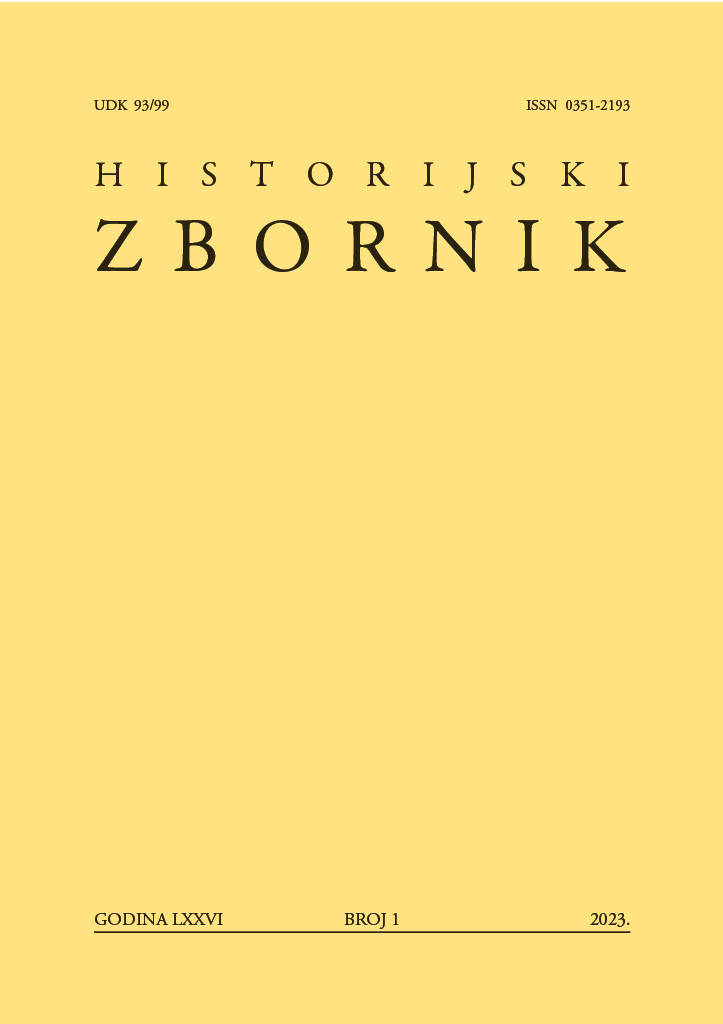Match between the national football teams of the Kingdom of Serbs, Croats and Slovenes and Czechoslovakia in 1924 in the light of the reports by the Novo doba newspaper
DOI:
https://doi.org/10.59412/hz.76.1.3Keywords:
football, Hajduk, national football team, Novo doba, unitarism, particularismAbstract
The Kingdom of Serbs, Croats and Slovenes was formed in 1918, and a year later the joint Yugoslav Football Association was founded in Zagreb. The national football championship for clubs was first held in 1923, and the King Alexander’s Cup in 1924, with the participation of the national teams of football sub-associations. Hajduk was the best football club in Split and the whole of Dalmatia, and one of the best clubs in the entire country. Split-based newspaper Novo doba regularly reported on its matches and other activities. In terms of its political orientation during the 1920s, this newspaper advocated unitarism and the policy of integral Yugoslavism. In the second half of 1924, Hajduk was achieving such good results in the championship and the King’s Cup that the coach of the national team invited the entire team (except for the goalkeeper who was not eligible to play due to his citizenship) to play for the national team of the Kingdom of Serbs, Croats and Slovenes in a match against the national team of Czechoslovakia, in September 1924 in Zagreb. Novo doba followed this news relatively modestly, but with pride. In a short time after that match, in which the home team was defeated, Hajduk lost its final matches both in the cup and the championship. Novo doba harshly criticised the Hajduk management for allowing all its players to play for the national team, believing that the players’ exhaustion led to the defeats when they played for Hajduk. By putting the interests of the local club before the interests of the national team, a symbol of the state and its unity, the sports policy was in contradiction with the general orientation of that paper, which placed “national unity” and the unitary state as its highest values. The paper shows that, by identifying with the local football club, Novo doba took a particularistic and local patriotic position in that segment, as opposed to the centralist and integralist trend in writing about national political topics. At the same time, it is pointed out that Hajduk has become one of the symbols of local and regional identity.
Downloads
Published
How to Cite
Issue
Section
License

This work is licensed under a Creative Commons Attribution-NonCommercial 4.0 International License.
Copyright holders are the publisher Association for Croatian History and the authors.
Historical Journal is an Open Access journal. Users are allowed to read, download, copy, redistribute, print, search and link to material, and alter, transform, or build upon the material, or use them for any other lawful purpose as long as they attribute the source in an appropriate manner according to the Creative Commons licence CC BY-NC.
The papers published in Historical Journal can be deposited and self archived in the institutional and thematic repositories providing the link to the journal's web pages and HRČAK. Journal does not charge article processing charges (APC). The editors assume no responsibility for statements of fact or opinion made by contributors.

